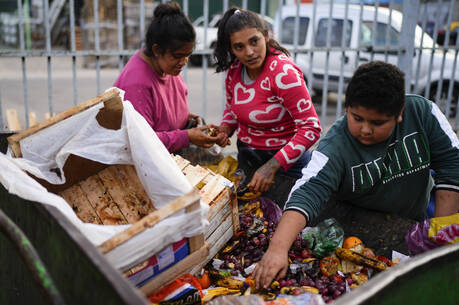Hunger, not religion, is the root cause of conflict in sub-Saharan Africa, said Charles Steinmetz of Duquesne University in Pittsburgh. “A hungry man is an angry man. If there is no job and you cannot feed your family or kids, it leads to extremism,” said Steinmetz, a visiting assistant professor of history. He used as an example the rampages of the Boko Haram in northern Nigeria. Steinmetz said the Islamic extremist group, which has killed 250 people in recent attacks, including 59 children, “sees the government as unable to assist the people.” Though it appears that the violence comes from religious differences, in many ways “it is almost coincidental that these issues break across religious lines,” Steinmetz said. An underlying cause of conflict in Nigeria is the legacy of colonialism. Colonial powers in Nigeria gave more aid and infrastructure to the southern part of the country. Now the development of the South has led to a much stronger economy. “The North is so far behind,” Steinmetz said, that resentments have caused even moderate northern Nigerians to side with the radical group.
Hunger Drives Sectarian Conflict in Africa
Show Comments (
)
Comments are automatically closed two weeks after an article's initial publication. See our comments policy for more.
The latest from america
Argentina has been in a state of economic upheaval for years with two constants—a continuous increase in poverty and corresponding efforts by the Catholic Church to respond to that need.
A surefire way to lose your congregation is to start a homily with “In today’s Gospel reading,” says Thomas Groome. “The purpose of good preaching,” he says, “is to bring our lives to God and God to our lives.” A homilist’s job, then, is to facilitate a meaningful conversation between the two.
In an interview with Norah Jones April 24 on “60 Minutes,” Pope Francis clarified that “Fiducia Supplicans” didn’t allow blessings of “the union” but of “each person.”
The pope devoted his entire Pentecost homily to describing how the Holy Spirit works in the lives of Christians with both “power and gentleness.”








